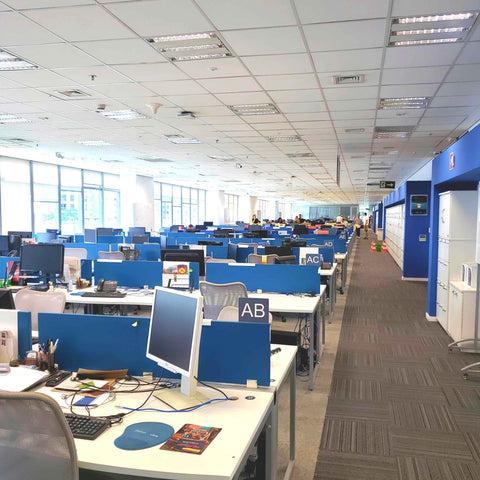If you’ve ever “powered through” your period pain, you’re not alone. Scientists can’t even get an accurate read on how prevalent period cramps are (they estimate anywhere between 45% and 95% of women are affected), because period pain so often goes unreported, undiagnosed, and untreated.
But here’s the thing. Just because you’re able to tolerate your period cramps doesn’t mean you should.
This article explains why doing nothing about your period cramps isn’t just painful in the moment; it can also be damaging to your long-term health in ways you may not realize.
Key takeaways from this article:
- It’s important to manage your period pain, even if you think your cramps are mild.
- Not addressing period pain can have scary long-term effects on mood, sleep, sensitivity to pain, and may predispose people with cramps to other painful chronic conditions.
- You don’t have to resort to over-the-counter painkillers to effectively manage period cramps.
All period pain is worth treating, regardless of severity
“My cramps aren’t that bad,” you say. “I have a high pain tolerance,” you say—and we believe you! But according to the science, using it to power through cramps isn’t serving you.
Research shows any menstrual cramping can have negative downstream effects on our health. Even cramps that aren’t severe are still recurring, and the body sees repeated exposure to pain as a big red flag.
Also consider that period pain severity is subjective. According to Laura Payne, PhD, period pain researcher at Harvard Medical School, “All pain is processed in the brain in relation to many other aspects of our lives, whether it’s our thoughts and memories, mood, genetic make-up, biological sensitivities, past experiences, or traumas.”
This means one person’s “not that bad” may be another’s “my uterus is trying to kill me” in response to the same amount of pain. It also means that pain your brain perceives as “not that bad” may still be enough pain to trigger a negative physiological response in your body.
Long-term health risks of powering through period cramps
Here’s how doing nothing about your period pain can affect your health over time, according to science:
It may increase your sensitivity to pain
Some research shows repeated monthly cramps can change areas of the brain that process pain. As a result, people who get cramps can grow more sensitive to pain overall, especially deep-muscle pain, even without an injury or inflammation.
And we’re not just talking about pelvic pain; pain hypersensitivity can develop in areas of the body outside of the reproductive system as well. Nor are we just talking about pain right before or during your period; pain hypersensitivity can be long-lasting, and can worsen other types of pain besides menstrual pain all month long, throughout the entire menstrual cycle.
It lowers your mood
Pain is both a sensory and emotional experience; pain exacerbates psychological stress, and psychological stress can exacerbate pain. Studies show women with period pain are significantly more agitated and have poorer moods compared to women with no pain. Depression and anxiety are also strongly associated with period pain.
It reduces your sleep quality
Research shows people with period pain consistently get significantly poorer quality sleep during their period. The relationship between sleep and pain is a vicious cycle: period pain reduces sleep quality, and the fatigue following a poor night’s sleep intensifies sensitivity to pain, while also wreaking havoc on your mood, attention, and focus.
It may predispose you to other painful chronic conditions
Studies suggest that previous pain predicts future pain. Some researchers believe powering through your period pain may put you at greater risk of developing other chronic pain conditions later in life, like fibromyalgia and tension headaches. Scientists don’t yet understand why some people with period pain will go on to develop a chronic pain state, while others won’t.
You have options for managing your period cramps
Among the people we’ve asked, one of the most cited reasons for powering through period cramps is frustration over how few treatment options are both safe and effective. Many folks would rather not treat their cramps at all than resort to popping over-the-counter painkillers, either because they’ve suffered side-effects from them, they don’t work that well, or because they simply don’t like the idea of taking pharmaceuticals.
We hear you, and agree that over-the-counter painkillers aren’t the right choice for everyone’s period cramps.
That’s why we made Cramp Aid—our natural solution to period pain. Cramp Aid is formulated with research-backed, high-potency nutrients and herbs that fight cramps even before they start.
Cramp Aid is easy and effective. Take it as-needed, like you would a painkiller, only there’s no drugs and no nonsense. Just natural, science-based relief.
Learn more about Cramp Aid here.

This information is for educational purposes only. It is not a substitute for professional medical advice, and is not intended to diagnose, treat, cure, or prevent any disease.







